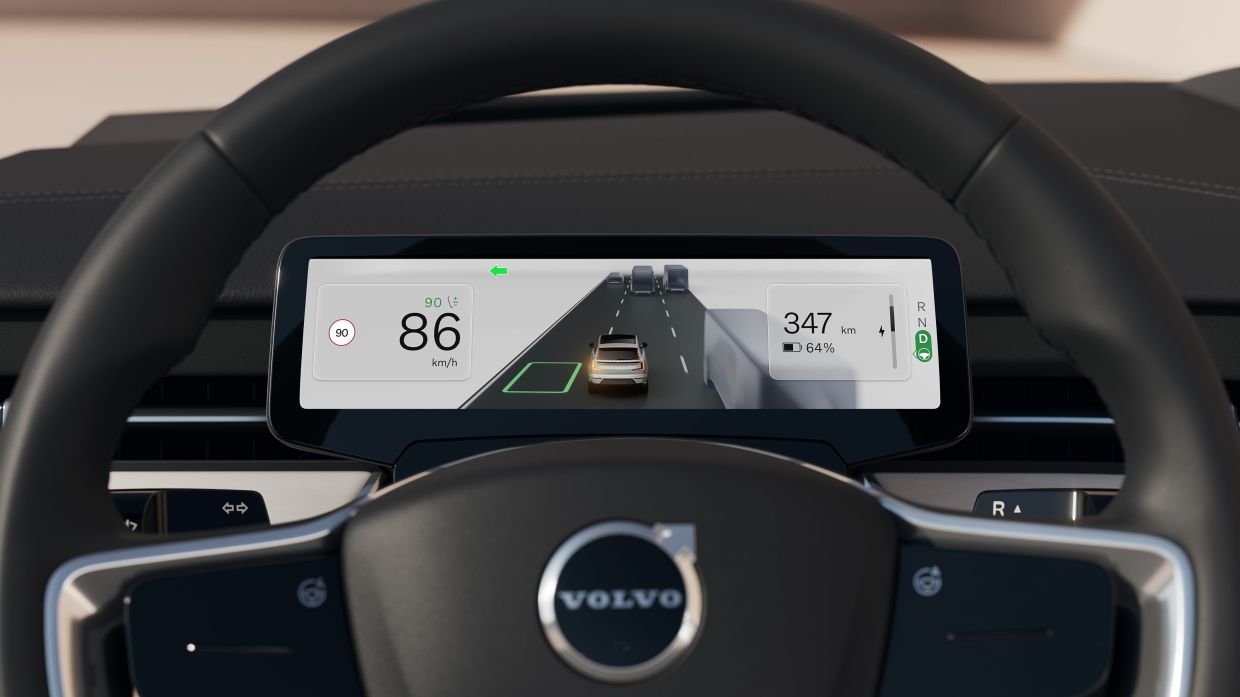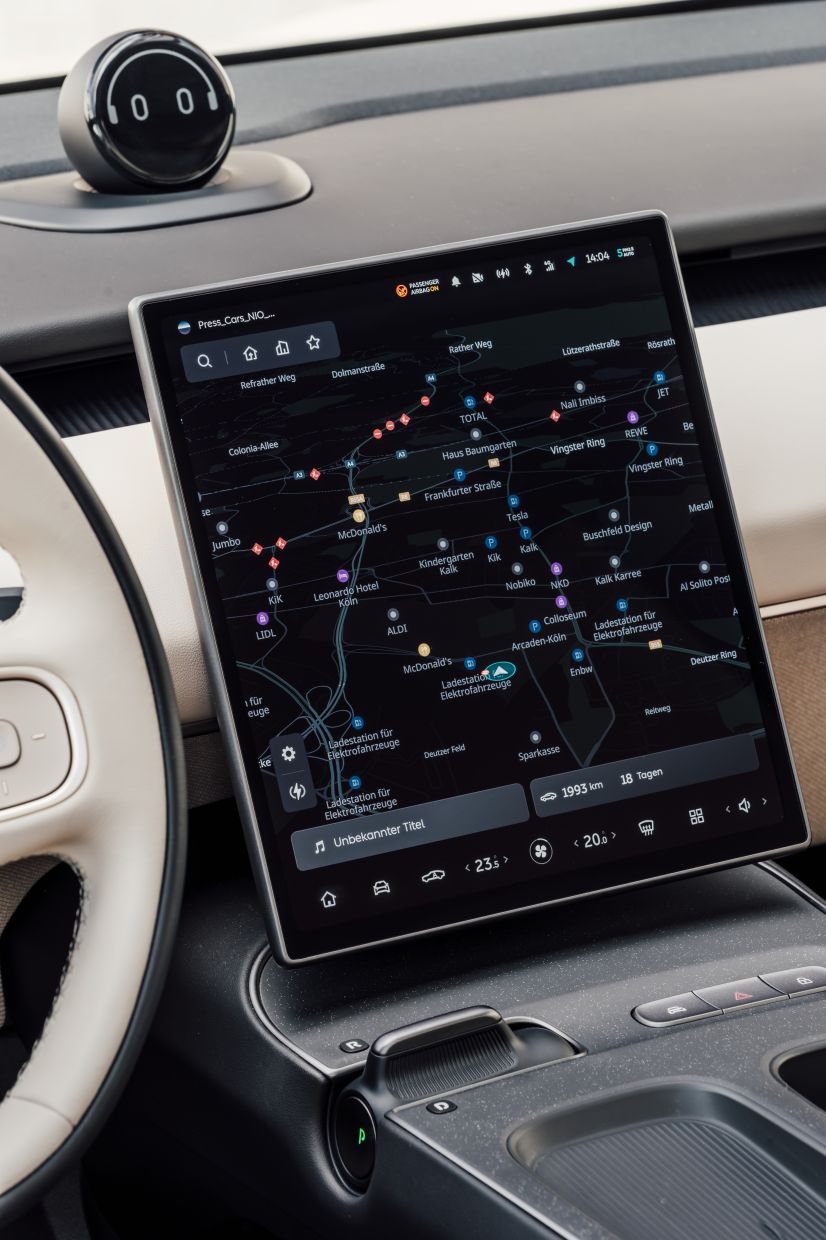Improvement to road safety or annoying disturbance? Car assistance systems have long developed into cheeky know-it-alls that now also keep a very close eye on the driver's behaviour. — dpa
COLOGNE: As soon as you drive 3 or 4 km/h above the speed limit, the cockpit of the new Prius starts beeping and flashing.
Toyota is already implementing the latest European Union (EU) safety regulations and has therefore installed a speed warning system. These will become mandatory for all new cars sold in the 27-member bloc in 2024.
Even if you switch the warning off, it becomes active again the next time you start the car. Toyota is by no means alone in this. Hardly any car going to market today, whether a new vehicle or an update to an existing model, is without a warning system.
With such safety systems, the EU is pursuing good intentions, but risks trying driver patience. One thing is certain: The influence of electronics is increasing.
Assistance systems have long developed into cheeky know-it-alls that keep a very close eye on driver behaviour.
Whereas in the past the focus of such systems was mostly on driving itself (for example, speed, distance, staying in lane and so on), now the driver is increasingly coming under the microscope.
What used to be a simple drowsiness warning system now uses a camera to monitor attention and issues a warning if the driver has been looking at the navigation map or the smartphone display for too long.
Volvo SUV keeps an eye on the driver
Volvo is installing a particularly sophisticated assistance system in its upcoming EX90 e-SUV.
"We monitor where the driver is looking and how often and how long their eyes are closed," says Emma Tivesten from the Volvo Safety Center in Gothenburg, Sweden.
"This allows us to learn a lot about their current state of mind and health and offer them additional help as the situation requires."
This starts with a simple audio warning signal, the volume of which increases with the danger potential of the situation. If the driver does not respond to the increasingly loud warnings, the car can even stop by itself at the side of the road and warn other road users by switching on the hazard warning lights.
The increasing surveillance of the car's interior can be a boon for scatterbrains. For example, car makers such as Mercedes, Audi, and Porsche remind drivers when they get out of the car not to leave their smartphones behind. And brands such as Kia and Hyundai tell you to check on the children and pets in the back seat.
Volvo's EX90 even has an interior radar system that monitors the entire cabin. Regardless of whether it's a child or a cat, if the electronics register another living creature in the car, the doors, for example, can’t be locked without some further action or confirmation, says Lotta Jakobsson, a safety developer at Volvo.
Inspired by European safety programme
A lot of this is thanks to the Euro NCAP (New Car Assessment Programme). Because the five stars in the Euro NCAP test are still considered the gold standard for safety in the automotive world, manufacturers voluntarily comply with the Euro NCAP specifications whenever possible, even if they go beyond what is legally required.
And the testing organisation is still pushing for more. “Despite major safety developments in cars, our work is not yet done,” says Niels Ebbe Jacobsen, the association's president. He is convinced that Euro NCAP has the potential to improve vehicle safety even further over the next decade.
However, assistance systems can also irritate and anger drivers with their finger-wagging and experts have identified possible disadvantages of such systems.
"In our studies, we also see that driver assistance systems have system limits that restrict expected effects or lead to inappropriate interventions," Allianz accident researcher Marcel Borrack told the German news magazine Der Spiegel.
And the Austrian Automobile Club ÖAMTC concluded after a member survey that “modern assistance systems can increase safety, but there is still an urgent need to improve reliability”. – dpa
Improvement to road safety or annoying disturbance? Car assistance systems have long developed into cheeky know-it-alls that now also keep a very close eye on the driver's behaviour. — dpa
Car assistance systems: Knowit-alls in the service of safety
In its upcoming EX90 e-SUV, Volvo has installed a particularly sophisticated assistance system. — Photo: Volvo/dpa-mag
Car assistance systems: Knowit-alls in the service of safety
Volvo's EX90 detects where the driver is looking and how often and how long their eyes are closed. There is also an interior radar that monitors the entire cabin. — Photo: Volvo/dpa-mag
Car assistance systems: Knowit-alls in the service of safety
Meet Nomi - Nio's digital co-pilot, who can be both chummy and very strict. — Photo: Nio/dpa-mag
Car assistance systems: Knowit-alls in the service of safety









